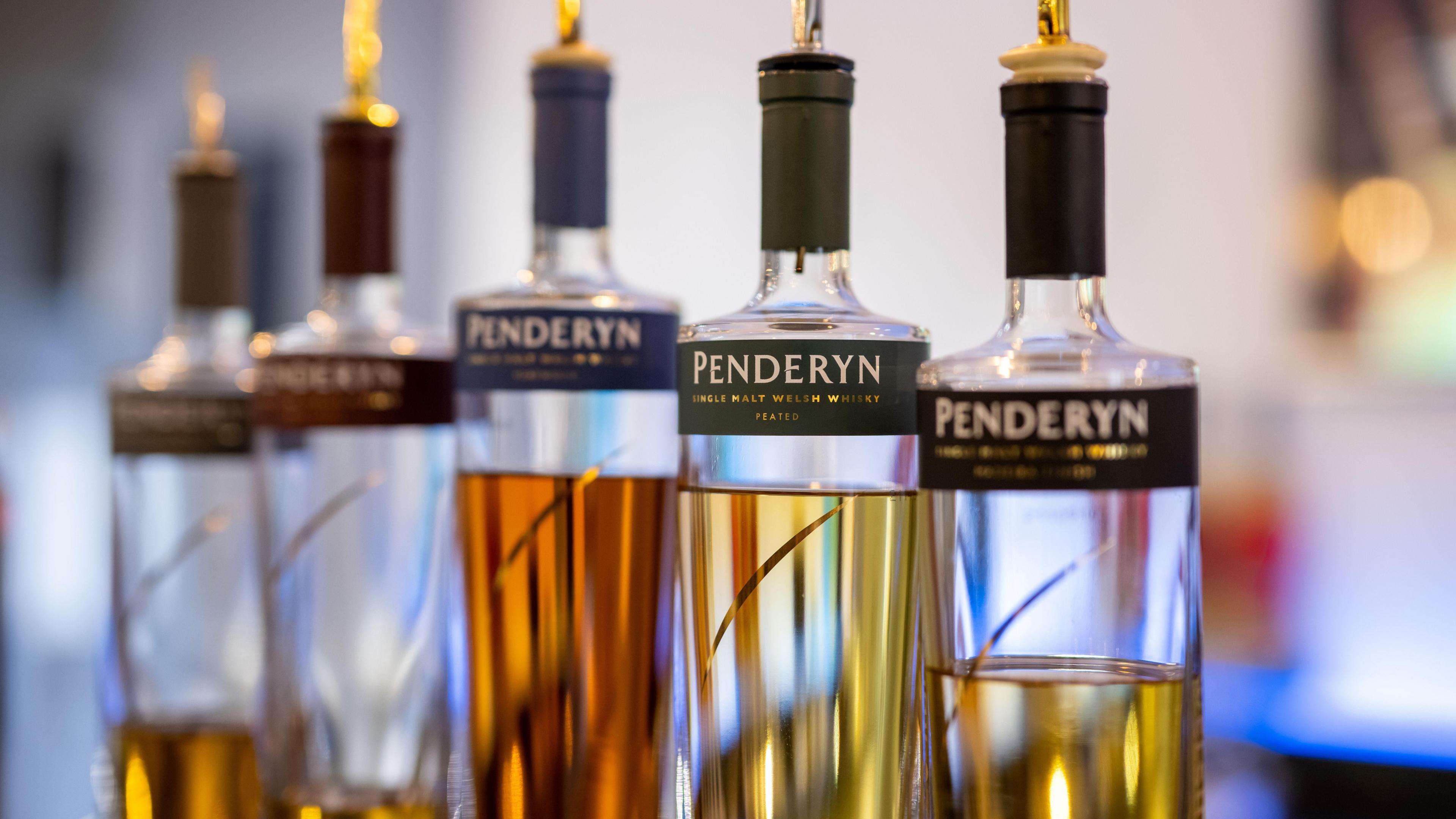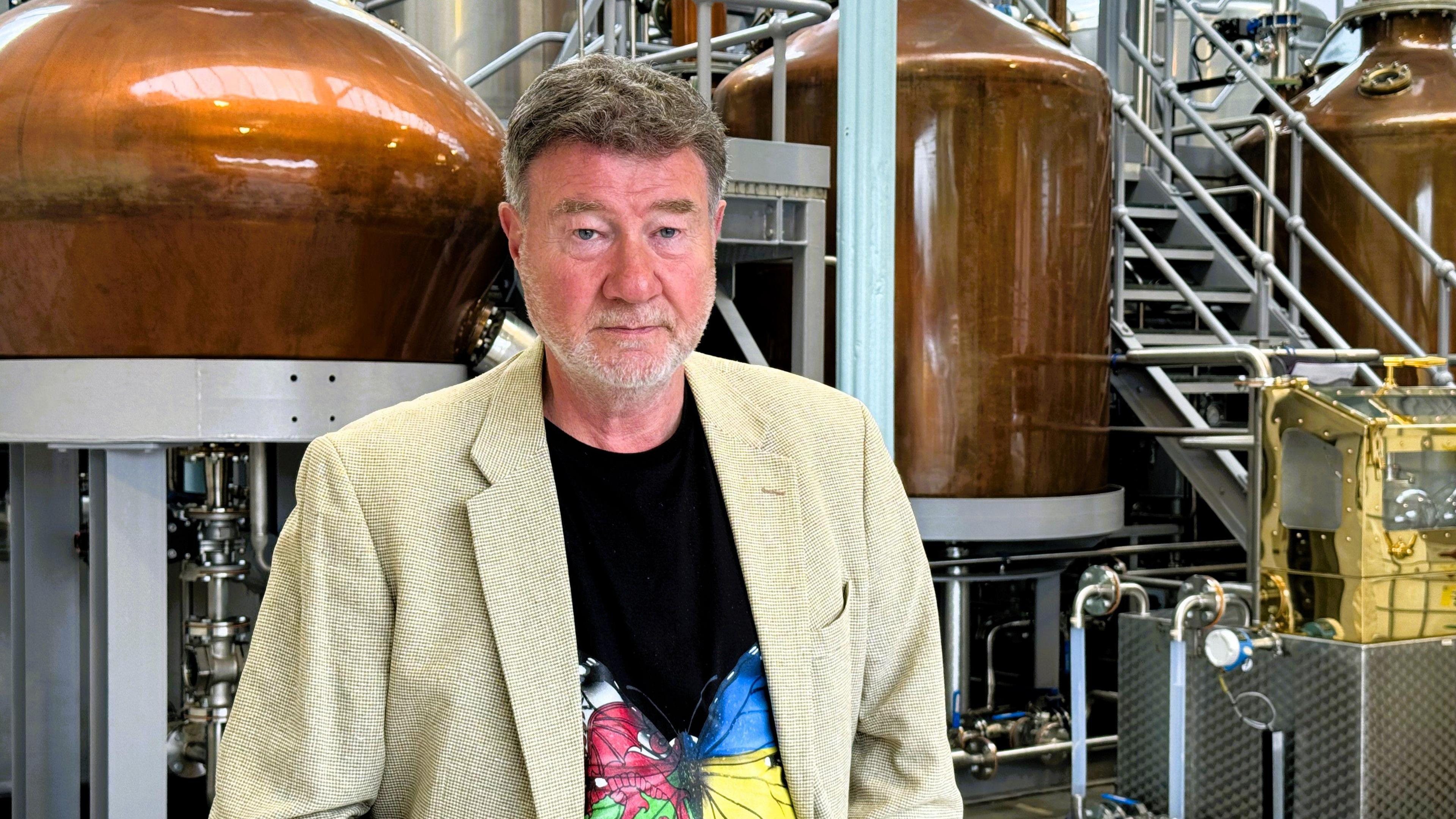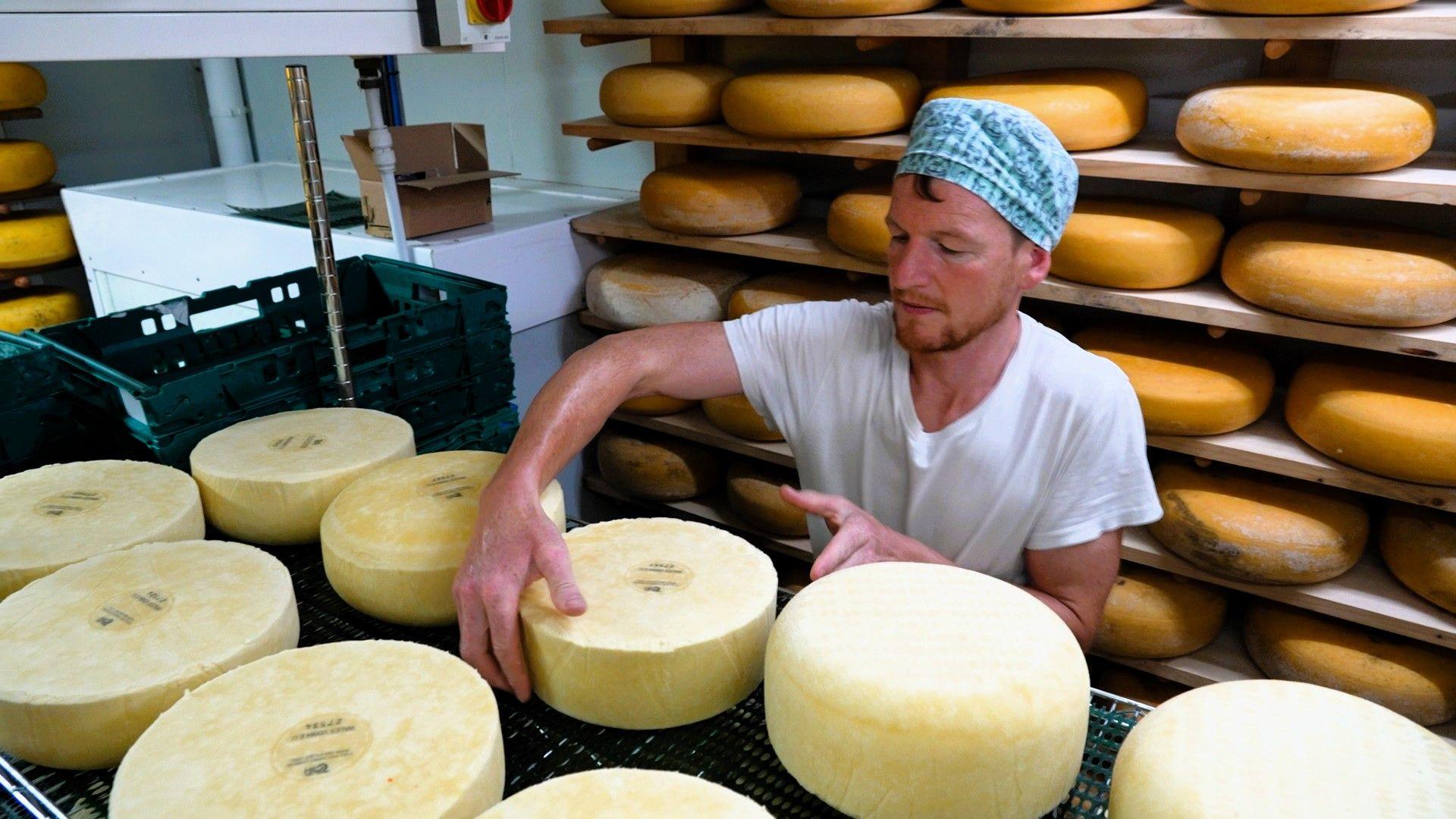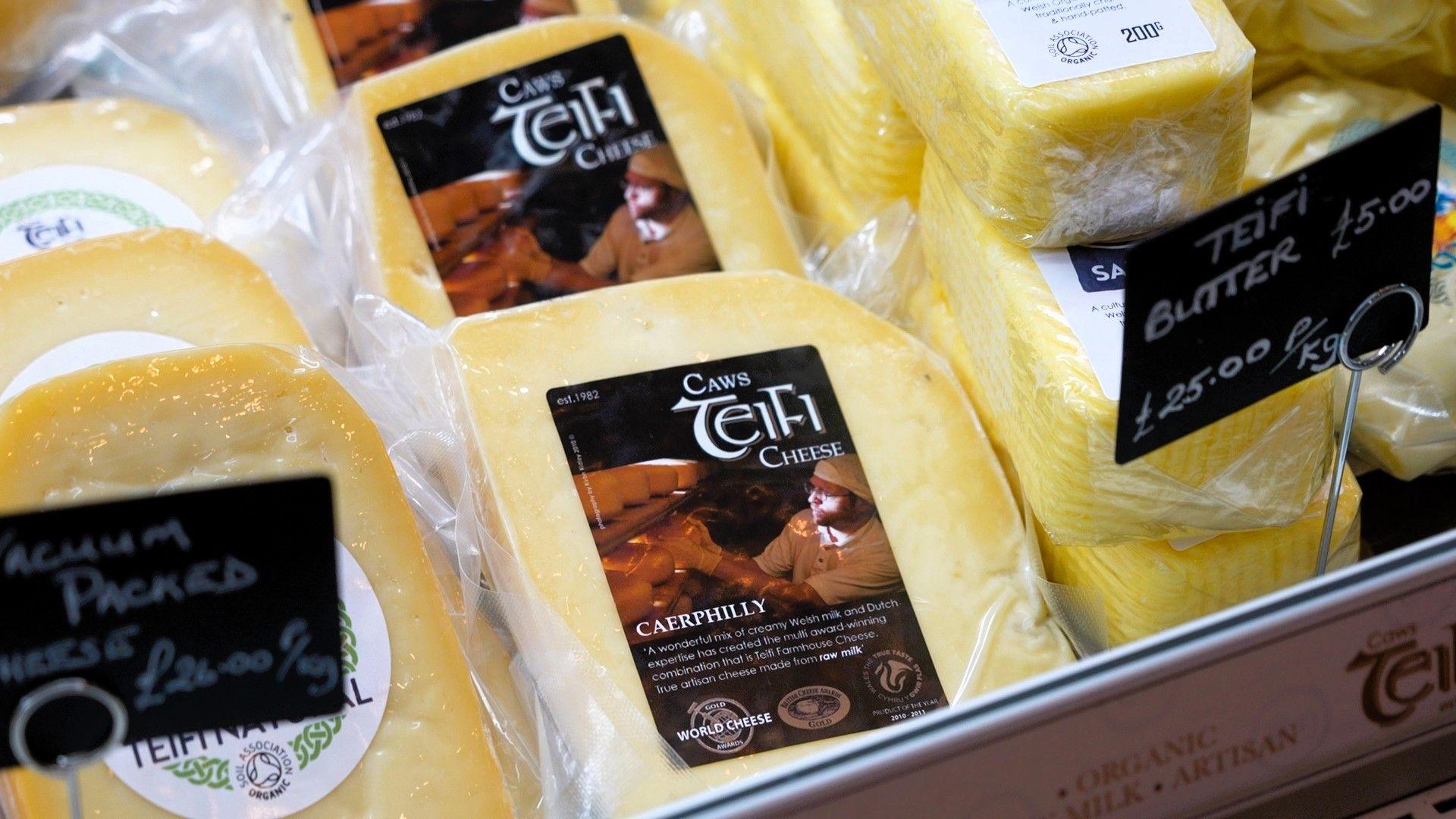Protected status boosts Welsh whisky 'credibility'

Penderyn is one of the Welsh distilleries producing single malt whisky
- Published
Granting protection to single malt Welsh whisky has added "credibility and status" to the drink, the chairman of one of Wales' leading distilleries has said.
Nigel Short, of Penderyn, said the drink was "genuinely world class" and the protected status, secured last year, had confirmed that.
Single malt is one of 20 Welsh food and drink products to be given protected geographical indication (PGI) status.
Welsh lamb, leeks and Caerphilly cheese also benefit from PGI status to guarantee and promote their authenticity.
Single malt Welsh whisky given protected status
- Published24 July 2023
Welsh cheese awarded protected status
- Published30 January 2018
Whisky from 1900 sells for £14,500
- Published5 December 2016
PGI status is used to protect and promote products from a particular region or country.
It took three years for Welsh whisky to receive its protection, which involved an audit to confirm the single malt had been made in Wales.
Penderyn is one of five single malt producers in Wales that can use the PGI status, which defends them from impersonation, affording similar protection to Scotch and Irish whiskies.

Penderyn chairman Nigel Short said PGI status gave "credibility" to the drink
“Around the world, at the British embassies and some of the Welsh government offices, you get a credibility and a status that you wouldn't otherwise enjoy. So it's a big tick in the box in terms of what we are doing,” Mr Short said.
The company has its headquarters at Penderyn in the Bannau Brycheiniog National Park - also known as the Brecon Beacons - with two other distilleries in Llandudno and Swansea.
Welsh whisky production is dwarfed by the Scottish market, which is worth almost £6bn to the UK economy.
A slowdown in luxury goods sales has recently hit the industry, and Penderyn hopes PGI status can add to its appeal.
“At the moment we export to around 40 countries, with the bigger markets being the USA, France, Germany.” Mr Short said.
“I think the credibility, last year, of getting [PGI] just helped that, because it gave us a status equivalent to a Scots or an Irish whiskey.”
What Welsh foods have PGI protection?
Among the other Welsh food and drink products with protected status are:
Welsh leeks
Conwy mussels
The Denbigh plum
Anglesey sea salt
Welsh lamb and beef

Rob Savage-Onstwedder's farm was audited before his Caerphilly cheese was given PGI status
At Glynhynod Farm in Ceredigion, a family-run business produces two products that benefit from PGI status.
The Da Mhile distillery produces a single malt whisky, while Caws Teifi is one of three producers of Caerphilly cheese to receive the protection.
“I think it's really great when you're trying to keep certain products alive, because it's so easy to follow trends,” Rob Savage-Onstwedder said.
His parents established Caws Teifi in the early 1980s and it is the oldest artisan cheesemaker in Wales.
Caerphilly cheese was named after the town where it was sold, but it had traditionally been made in farmhouses across Wales.

PGI status protects Welsh products like Caerphilly cheese from impersonation
Getting protection from imitation is also an important way of preserving Welsh cheesemaking methods and recipes, according to Mr Savage-Onstwedder.
“In France, these PGIs make a huge difference.
“There are so many varieties of cheese still alive there because of the protection that's given to certain cheeses from certain regions, and I think that PGI can do the same in Wales,” he said.
Caerphilly was originally granted the status in 2018.
Caws Teifi was audited “to make sure that we’re making the cheese within the specification, and it has to be milk from Wales”, Mr Savage-Onstwedder said.
“There are lots of other indicators and factors that we have to stick to in our recipe, and in the end product, which is great,” he added.